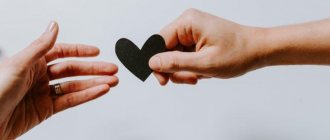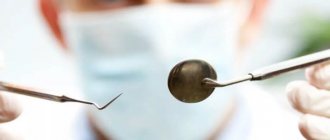Sleep mode should be selected individually. Sleep mode is the time of waking up and going to bed. To feel rested and full of energy, you need to determine the most suitable regimen and strictly follow it.
To do this you need to consider:
- individual needs for sleep (some people feel alert after sleeping for 6 hours, while for others 8 hours may not be enough);
- age (young children sleep longer, then the total duration of sleep decreases, reaching 6 to 9 hours in adults);
- the nature of the activity (working shifts, even with a strong desire, cannot adhere to the standard regime).
Take up sleep monitoring
First, it's important to understand what's wrong with your sleep. Sleep monitoring will help with this. Thanks to monitoring, you can find out whether you have problems falling asleep, whether you wake up in the middle of the night, or whether you sleep lightly.
If you are very serious, you can sign up for a study in a special sleep laboratory and consult a somnologist. Polysomnography is the gold standard for identifying sleep disorders. Doctors use tests like these to diagnose restless leg syndrome, sleep apnea, insomnia and other conditions.
However, today there are many cheaper and smaller devices that can help with sleep monitoring. If you have a smartwatch, special apps can track your sleep patterns based on your heart rate. The watch can also record sounds, which can help detect snoring or external stimuli that are preventing you from sleeping deeply. For example, loud noises from the street early in the morning. Conducting such a “research” is much easier, but its accuracy will be much lower.
Please note ☝ There is varying evidence regarding the effectiveness of sleep monitoring apps. Some studies suggest that the readings from smart watches and trackers are quite reliable. Other studies indicate that such devices often overestimate sleep duration. There is also evidence that for some people, smart watches and similar gadgets can cause additional anxiety, which impairs sleep.
Why choose the KORSAKOV clinic?
- We work 24/7;
- Treatment of patients is anonymous and without registration;
- Possibility of receiving therapy in a hospital, outpatient and at home;
- Comfortable conditions for patients to stay in a modern hospital;
- Highly qualified doctors;
- Individual therapy programs that are selected by doctors after a comprehensive examination of the patient and diagnosis;
- Fixed prices for services;
- Result guarantee.
To make an appointment with a doctor, call a specialist at home, or get advice on any treatment issues, you can call: +7 (499) 288-19-74 . We work around the clock and are ready to help you at any time of the day or night.
Choose the optimal temperature
Body temperature drops outside and rises before waking up. Bedroom temperatures that are too low or too high can affect the quality of your sleep. It is believed that for optimal sleep, it is best to keep the room temperature between 18 and 24°C. It should be remembered that body temperature is affected not only by the temperature in the bedroom, but also by bed linen and pajamas.
It is believed that for a comfortable sleep, your room should be like a cave - it should be dark, quiet and cool. To do this, you can open the windows, turn down the heating if possible, or use, for example, a fan.
Maintain good sleep hygiene
Here are a few rules to help you fall asleep at your desired time:
- Ensure silence. Close the windows and doors, try to prevent extraneous sounds from entering your bedroom. If that doesn't work, use a white noise generator.
- Sleep in a cool room. The ideal The Ideal Temperature for Sleep temperature is 15–19 °C.
- Avoid caffeinated drinks, especially in the afternoon. These include not only coffee and tea, but also all kinds of energy drinks and often even regular soda.
- Make sure your bed is comfortable. A mattress that is too soft (or, on the contrary, very hard) and lumpy pillows lead to you unknowingly turning around in bed in search of a more comfortable position. And these movements reduce the quality of sleep.
- Be sure to exercise throughout the day. Regular exercise will increase your chances of healthy rest.
Reduce exposure to blue light
Blue light that comes from gadgets can negatively affect the quality of your sleep. This is why the habits of scrolling your feed on social networks or watching TV series before bed are not the healthiest. Blue light affects natural circadian rhythms.
The easiest way to minimize the negative effects of blue light is to give up gadgets 1-2 hours before bed. An alternative could be a paper book, conversations with loved ones, or any hobby that does not require a phone or computer.
Why is sleep so important for a person?
During sleep, a person’s hormonal levels are restored, nervous tension is relieved, processes in the brain slow down, allowing him to “rest.” Muscle tension is relieved. The heart rate and pulse rate are normalized. All recovery processes are started. The production of somatotropin (growth hormone) during sleep triggers the process of cell renewal in the body and regulates metabolism. Immunity is strengthened.
Lack of sleep leads to the development of chronic fatigue, headaches and migraines, and the risk of hypertension, coronary artery disease, and stroke. A person with insomnia is irritable, lethargic, whiny and often aggressive, which negatively affects his personal and social life. That is why it is extremely important to seek help from a specialist in time, who will select the optimal treatment methods for insomnia and return you to full and healthy sleep.
Online consultation with a specialist
regarding your question!
License number: LO-77-01-019036
Get ready for bed
A good habit is to simply get ready for bed - make sure that all urgent matters are done, plans for tomorrow are made, and you are ready to relax. Here are some tips that may come in handy:
- take a warm, but not hot, bath - this will help your body reach the ideal temperature for relaxation,
- write a to-do list for the next day - this will help organize your thoughts and get rid of any distractions,
- Do relaxing exercises, such as light stretching, just don't do intense workouts before bed,
- listen to calm music,
- read, but not from your phone or computer.
Meditation can also help you relieve anxiety, pay attention to your breathing, and simply relax. Research shows that meditation and mindfulness practices can help quickly overcome minor sleep disturbances. Other studies have found that people who do these practices experience less insomnia and depression, and less fatigue.
Important☝ If insomnia bothers you for more than four weeks, you need to see a doctor.
When is sleep disorder especially dangerous?
After just three completely sleepless nights, a seemingly healthy person may experience delusions, hallucinations, attacks of acute psychosis, and epileptic seizures. Seven days spent without sleep ends in guaranteed death. It has long been established that symptoms of insomnia are independent risk factors for heart disease and stroke.
In some cases, sleep disturbance is not even a bell, but a bell signaling a mortal danger to life. Gleb Lutokhin says:
“A strong young man, 28 years old, complains of snoring and sudden cessation of breathing during sleep. At night, the wife had to push her husband away more than 40 times an hour, restarting the breathing process. This is a case of central apnea - a pathology in which the medulla oblongata stops giving the body the command to inhale. Such situations very often end in the death of the patient. As it turned out, the patient had a congenital organic pathology in which the vertebral artery compresses the respiratory center of the medulla oblongata. We have selected the appropriate ventilation option. For the rest of his life, the patient will have to sleep with a device that will control his breathing and breathe for the owner in those moments when he stops doing it on his own. But the patient sleeps well, does not get tired during the day, and has even lost weight.”
Move
We know that exercise improves microbiota composition, improves mood and helps maintain physical and mental health. But beyond that, research shows that exercise can have a positive effect on sleep.
How exercise improves microbiota
In particular, physical activity helps improve the quality and duration of sleep, and also helps with insomnia. It is best to exercise in the morning or afternoon so that by night the body is ready for a full night's sleep. You should avoid intense exercise two hours before bed. And before going to bed, you can do light stretching exercises.
Let's talk about the menu? Be smart about your drink and food choices throughout the day.
Our bodies are powerful machines that need fuel to keep moving. And the better the food, which is also fuel, the better and longer the body will work for us. But food is not only important as a source of daily energy, it is very important that food has an impact on a quality night's sleep. Just think about that night when you had a very greasy dinner right before bed, how did you feel the next morning? Proper nutrition is a powerful sleep aid and should not be ignored.
What happens to our body at night?
We spend a considerable part of our lives sleeping. If you think that at night the body just rests, then you are mistaken. Did you know that at night the body is cleansed of toxins and cells are restored? Metabolism also continues, only at a slower pace. Throughout the day, food is converted into energy for the muscles. When we sleep, our energy needs decrease, and our inactive state prevents enzymes and stomach acids from converting food into energy reserves.
To eat or not to eat before bed?
This is the key question. But is this the right question to ask? Instead of asking whether we should eat before bed or not, it is better to ask what to eat and when. The general recommendation is that at least two hours should pass between the last meal and bedtime. One of the reasons for this recommendation is that the stomach does not work as intensely during sleep as during the day, and this can cause digestive problems, for example, acid reflux (reflux of acidic stomach contents into the esophagus - causing very unpleasant sensations).
But there's another good reason why eating before bed isn't a good idea. Let's face it, the last thing you eat before bed is usually a snack. This means you're likely consuming not only extra calories, but also empty calories because you're eating extra food. And by doing this you create a bad habit, which ultimately leads to poor sleep. It is an absolute fact that how we sleep at night depends on what we eat during the day.
What foods improve sleep?
The main thing is to eat something that does not create a feeling of heaviness in the stomach. Let’s look at the “dos” and “don’ts” that you can follow.
CAN
Choose light meals such as salad, omelet, cottage cheese, turkey and vegetable soup. Fish is an excellent source of vitamin D and omega-3 fatty acids, which have properties that improve sleep quality. Due to their high glycemic index, which causes drowsiness, white rice and oats can also be included in the evening diet.
There are several natural foods that improve sleep because they contain melatonin, a hormone that helps control the body's biological clock. One of them is cherry
, many scientific sources suggest drinking cherry juice for overall health as well as improved sleep.
almonds
before bed , which, in addition to melatonin, is a source of magnesium.
Drink a cup of chamomile tea
, not only as a sedative: this tea contains antioxidants, which can promote drowsiness and improve sleep.
IT IS FORBIDDEN
Acute
or
fatty foods
cause problems at night and disrupt sleep.
These foods can cause digestive problems such as acid reflux or heartburn. Keep in mind that alcohol and caffeine
can have a significant impact on your sleep, so for a good night's sleep, avoid consuming them in the evening. To sleep better, avoid sugar, not just before bed, but throughout the day. Refined sugar can disrupt sleep because it causes spikes in blood glucose levels.
Try to take notes on what you eat during the day and how it affects your sleep at night. This way you can find out how the body reacts to different types of food and how this affects your sleep.
Stick to a Schedule
The circadian rhythm, also known as the internal body clock, influences your sleep and wake schedule. Ideally, we should feel most alert early in the morning and ready for bed when it gets dark. The circadian rhythm is affected by unstable sleep patterns, time zone changes, irregular work schedules and overwork.
How can the situation be improved:
- Go to bed and wake up at the same time every day. For children, you need to establish a daily routine and bedtime. Don't use your child's bedroom as a place for time-outs or punishment.
- Try to stick to the same sleep schedule on weekdays and weekends.
- It is worth giving up a heavy dinner a couple of hours before bedtime (snacks are possible), as well as alcohol and nicotine.
- If possible, try to walk every day and be physically active in general.
The best remedies for insomnia
Medicines
Melaxen
A synthetic analogue of the hormone melatonin, responsible for sleep. The drug quickly normalizes and correctly regulates biorhythms. Increases the depth and quality of sleep, eliminates periodic night awakenings. After a night with Melaxen, the feeling of weakness disappears, lethargy and fatigue disappear, dreams become bright and rich. Also suitable as an adaptogen when changing time zones. Reduces negative reactions to stress. Does not cause dependence or addiction.
Recommended course as a sleeping pill: 1 tablet 1 time per day before bedtime. As an adaptogen: the day before the expected departure and for 2-3 days after changing the time zone before bed.
Mälarena
The drug is an analogue of Melaxen. Also indicated for circadian rhythm disorders: flights with changes in time zones, violation of the daily routine, including shift work schedule. Helps eliminate weather dependence syndrome, fatigue, insomnia in older people, and reduces depressive syndrome.
Recommended course: For insomnia and sleep disorders, 1 tablet once a day, 30 minutes before bedtime. The duration of taking the drug is from 1.5 to 2 months. When changing time zones the day before departure and for 2-5 days after, 1 tablet 1 time per day before bed.
Melarithm
The effect on the body is similar to previous drugs. Normalizes circadian rhythms; Makes sleep deep and of high quality, eliminates night awakenings and promotes rapid fall asleep. But in addition to regulating sleep, melarhythm helps improve well-being, mood, and eliminates lethargy and morning drowsiness. It has a pronounced immunostimulating and antioxidant effect.
Recommended course: 1.5–3 mg 30 minutes before bedtime, 1 time per day. Duration of admission is no more than 7 days.
Herbal preparations
Nervochel
A homeopathic medicine designed to reduce increased nervous excitability and normalize sleep. Used for neuroses and menopause in women. Eliminates symptoms of depression and blues, VSD.
Recommended course: 2-3 weeks,
dissolve 1 tablet under the tongue 3 times a day 30 minutes before meals or 1 hour after meals.
Motherwort forte Evalar
Motherwort has a pronounced calming effect, strengthens the nerves, and puts the cardiovascular system in order. The advantage of the drug is that it additionally contains magnesium, and as is known, this microelement plays a key role in the functioning of the nervous system and eliminates muscle excitability. In combination with vitamin B6, which is the main link in the functioning of the nervous system, magnesium is better absorbed by the body. The drug performs a complex effect - it normalizes the emotional state, relieving anxiety and aggression, and at the same time improves sleep.
Recommended course: 3-4 times a day, 1 tablet for 3-6 weeks.
Novo-passit
Completely herbal preparation. Recommended for neurasthenia, increased anxiety, emotional instability, aggressiveness and irritation. Helps overcome fears, eliminate distraction and fatigue. Helps cope with headaches and mild forms of insomnia and periodic sleep disorders associated with psychological tension and stress. The advantage is that it is acceptable for children over 12 years of age.
Recommended course: 5 ml 3 times a day before meals with the prospect of increasing the dose to 10 ml per dose. If severe fatigue or depression occurs, it is necessary to reduce the morning and daily dose by 2 times and take 2.5 ml in the morning and afternoon and 5 ml in the evening. The interval between doses of the medicine should be 4-6 hours.
Knightwell
An excellent and effective drug, with many positive reviews. The herbal composition is enhanced with Magnesium and vitamin B6. Includes mechanisms that are responsible for maintaining normal sleep and deep sleep. Waking up in the morning becomes comfortable, light, without feeling groggy and tired. In addition, Nightwell promotes better concentration, memory and performance, because Magnesium in combination with vitamin B6 has a beneficial effect on the nervous system.
Recommended course: just 1 capsule before bedtime. Duration of treatment is 3 weeks.
On a note
Lack of sleep is harmful to health: it increases the risk of obesity, diabetes, cardiovascular diseases and cancer, affects mental health, and reduces life expectancy.
Sleep is necessary for the restoration of the body and its normal functioning. When we sleep poorly, our productivity, ability to concentrate and learn decrease, memory and mood deteriorate.
To improve your sleep, you need:
- Avoid gadgets 1-2 hours before bedtime.
- Maintain an optimal temperature in the bedroom.
- Go to bed and wake up at the same time every day.
- Don't forget about physical activity.
- Reduce the amount of alcohol and nicotine before bed, and also avoid a heavy dinner a couple of hours before bedtime.
Warning☝ This article is for educational and informational purposes only and should not be used for diagnosis or treatment, or as a substitute for professional advice.
Five Tips for Creating a Sleeping Kingdom
How to improve sleep with folk remedies? Start with decorating your bedroom!
Good mattress = good sleep
It's safe to say that a mattress is one of the important factors in the equation for a good night's sleep. From a wide range of different mattresses, choose one that will provide the comfort and support your body needs. Keep in mind that over time, the mattress begins to lose some of its functions and needs to be replaced.
Cool and fresh
If you're cold, you can always cover yourself with an extra blanket, but if you're hot and sweaty, your night's sleep will be ruined. This doesn't mean you have to run the air conditioner all night, but keeping a window slightly open can help (if it's not too hot outside, of course). Plus, the air will be fresher, and who doesn’t love sleeping outdoors?
Dim the lights
How to improve the quality of deep sleep? The answer is simple: turn off the light. Only darkness will provide deep, restorative sleep and help maintain a regular sleep schedule. The human body naturally adapts to light and darkness. Perhaps you have noticed that you feel sleepy when it gets dark outside and the morning sun in your bedroom wakes you up? We call this the biological clock, it is based on the light signals that the nerve endings in the eyes receive. If you don't want to buy heavy curtains or blinds, a sleep mask is a good solution.
No electronic devices
TV and other electronic devices emit blue light, which, simply put, signals your body to stay awake. Light from devices interferes with the body clock, which leads to poor sleep. But it's not just light, sleep can be disrupted by the information you receive and process by reading email or the news before bed. In general, if there are products that improve human sleep, gadgets are not one of them.
Get rid of the clutter
The bedroom should not be filled with things that are not functional for relaxation. Keep essentials nearby, maybe on your nightstand, but put anything else that might distract you in drawers or closets.
What else can you do?
Genetics can also influence sleep patterns. Scientists have discovered that insomnia can be inherited. Researchers have also established a genetic link between insomnia and type II diabetes. Various DNA tests, including the Atlas Genetic Test, can analyze your genetic predisposition to insomnia.
There's also growing evidence that gut microbes can influence sleep quality. According to a 2019 study, having a more diverse microbiome (with different types of bacteria) is associated with better quality sleep. The diversity of the intestinal microbiota and other important parameters of a healthy intestine can be determined by the Atlas test.
Sources:
- NHS: Why lack of sleep is bad for your health – Sleep and tiredness
- NHS: How to get to sleep – Sleep and tiredness
- Tomas Chamorro-Premuzic, “How Much Is Bad Sleep Hurting Your Career?”, Harvard Business Review Home
- Kelly Glazer Baron et al., “Orthosomnia: Are Some Patients Taking the Quantified Self Too Far?”, 2017
- Dalva Poyares et al., “Fitness Tracker to Assess Sleep: Beyond the Market”, 2015
- Janna Mantua et al., “Reliability of Sleep Measures from Four Personal Health Monitoring Devices Compared to Research-Based Actigraphy and Polysomnography”, 2016
- Kathleen E. West et al., “Blue light from light-emitting diodes elicits a dose-dependent suppression of melatonin in humans,” 2011
- National Heart, Lung, and Blood Institute: Sleep Deprivation and Deficiency
- Mark R. Rosekind, “The Cost of Poor Sleep: Workplace Productivity Loss and Associated Costs,” 2010
- David S. Black et al., “Mindfulness Meditation and Improvement in Sleep Quality and Daytime Impairment Among Older Adults with Sleep Disturbances: A Randomized Clinical Trial,” 2015
- Kline, C, E., “The Bidirectional Relationship Between Exercise and Sleep: Implications for Exercise Adherence and Sleep Improvement,” 2014
- Yujiro Yamanaka et al., “Physical exercise accelerates reentrainment of human sleep-wake cycle but not of plasma melatonin rhythm to 8-h phase-advanced sleep schedule”, 2010
- Smith, R, P et al., “Gut Microbiome Diversity is Associated with Sleep Physiology in Humans”, 2019
- Stein, M, B et al., “Genome-Wide Analysis of Insomnia Disorder”, 2018
- Celia Vimont, “Should You Be Worried About Blue Light?”, 2021
Try sleep deprivation
Another effective, although rather controversial, way to restore sleep patterns is to not sleep for exactly 24 hours. When the long-awaited evening finally arrives, you will probably fall asleep as soon as your head touches the pillow.
This method is, of course, cool. But researchers were able to prove in An Unconventional Release from Depression the connection between daily lack of sleep and the activation of a certain type of brain cells that produce the protein adenosine. It is extremely important for sleep regulation: a sufficient amount of adenosine helps normalize the sleep-wake cycle.
Important details:
- Since the method is quite severe, you can resort to it only after consulting a doctor - the same therapist.
- During periods of sleep deprivation, avoid driving or performing other tasks that require alertness and concentration.











